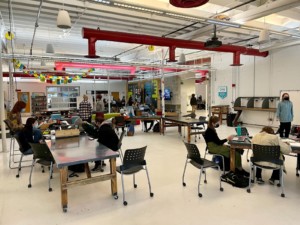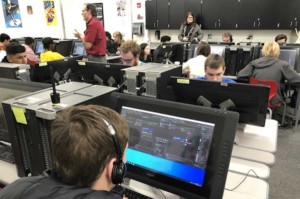Barber: Building Blocks of World-Class Education
 Michael Barber was the architect of many of the UK education reforms for Tony Blair and then joined McKinsey as its education practice leader. Barber is a global thought leader on education and one of the leading thinkers about learning systems.
Michael Barber was the architect of many of the UK education reforms for Tony Blair and then joined McKinsey as its education practice leader. Barber is a global thought leader on education and one of the leading thinkers about learning systems.
Barber opened Excellence in Action this morning with his building blocks of world-class education:
1.Standards & accountability: benchmarked standards, transparent data, all student agenda challenging inequality
2. Human capital & collective capacity: recruit great people, continuous improvement, great leadership at every school
3. Structure & Organization: effective central government, change management capacity, school-level budgets
The journey to world class education begins by mandating adequacy and is kicked into high gear by unleashing greatness:
1. Poor to fair: basics of literacy & numeracy
2. Fair to good: getting the foundations in place
3. Good to great: shaping the system
4. Sustaining greatness: continuous renewal
Progress depends on systemic implementation. It’s starts with clear priorities which much be supported by a plan. Daily routines are interrupted and redirected and sustained through new relationships.
When pressed by Checker Finn on choice (since it didn’t show up in the building blocks), Barber noted that while he’s sympathetic, there’s not that much in the global evidence base as a key lever. “As citizens become more empowered, they will demand more and greater choices.”
[here’s a deck from last year that includes Barber’s building blocks]







Core 4 All
As we continue to discuss ways to improve the educational systems, we tend to focus on the future. But what about the students we have today in our classes? What about the teachers that are currently educating our kids? We need to find ways to improve student achievement today. For example, today we can improve our curriculum by moving from a content-driven curriculum to a skills-based curriculum. Today, we can read and implement the current research on best instructional practices by reading John Hattie and Robert Marzano. Today, we can create common formative assessments that measure students' skills and make informed decisions on instruction. What I ask is that current teachers in the field realize that we need to reform ourselves. We need change agents, edupreneurs willing to step out of their comfort zones and revamp curriculum. Only then can we say we are on the path to success in preparing our youth for the 21st century.